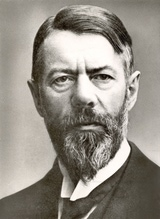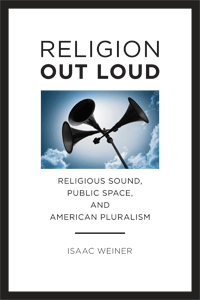This is one in a series of guest posts authored by students in an undergraduate course I taught during Spring 2014, “Protestantism and the Development of American Culture.” Each student’s task was to write an informative essay explaining some way that Protestants have shaped (or tried to shape) American culture. Students knew that their essays would be posted to this blog, so they would have a real-world online audience.
Students are entirely responsible for the content and quality of their essays; I am merely the vehicle for broadcasting them (though on the whole I’m reasonably pleased with the results).
American Protestant Work Ethic: As Compared to Islam and Japanese Culture
By Ian Marker
America has become a business icon leading the way in production and entrepreneurship. The Protestant theory called the Protestant Work Ethic and is widely believed to be the start of how work has been conducted in America through its years. This stems from that of the countries work ethic, which, traditionally, is known to be based upon Protestant Christian ideas. Humans in other area of the world have a work ethic as well, whose background has not been traditionally Protestant. It is these comparisons and contrasts that will be discussed in the content of this article.
The differences presented between each culture provide contrast to that which is not American. Through this article, we will look at how the history of Protestant Work Ethic has affected America working culture today. Then, We will compare this ethic to that of countries which are not historically Christian such as Japan and Turkey.
American Working Background
The American work ethic is based on that of the original theories of how protestant should spend their money. The grounds for Protestant work ethic strain from theological perspectives based on Scripture, mostly the book of Genesis, and Calvinists views of work.. Weber contributed the theory of Protestant work ethic, which brought about development of capitalism and industrialization.
The Calvinists who first inhabited the North East area of the country were escaping religious tension from within the English Kingdom. The Calvinists called themselves Puritans when settled in America. Calvinists believed that money was something that was good when used to drive work. It was right to go to work, work hard, and make money based on the work done. They thought that this act was good in moderation and paved the way for a natural capitalism.
 A man by the name of Max Weber wrote on his accounts of how the Protestant groups viewed work and money. He saw how money was being used to stimulate the economy inside small communities in groups such as the Calvinists. He was on the side that believed Calvin and Martins’ theories about capitalism was a positive attribute to man.
A man by the name of Max Weber wrote on his accounts of how the Protestant groups viewed work and money. He saw how money was being used to stimulate the economy inside small communities in groups such as the Calvinists. He was on the side that believed Calvin and Martins’ theories about capitalism was a positive attribute to man.
The Protestant work ethic, over the decades had degraded along with the overwhelming sense of American secularism. This notion of can be seen as a change to that of the “American Dream” which includes working hard to be successful and prosperous in life. This dynamic of Protestant capitalism has been somewhat degraded into a more socialized union while in parallel; America has become a more secular nation.
The main points in what consist of the Protestant work ethic in American culture is that one works to fulfill the work for their family. It is good to earn money and make a modest pay. This system fits into the capitalist society that the American market is based on. The Bible makes reference however, that Man should not get greedy or exceed that of what they may need in life. This stresses the idea of moderation and its goodness in society.
Islamic View of Work
In the Middle East, Islam is an intrinsic part of life and has played a significant role in establishing a religious work ethic. While Muslims share the hard ethic of Protestant culture, there are some differences to their beliefs that differentiate them from the Christians. Though both traditions emphasize a hard work ethic, Islam encourages a life of individual struggle, while Protestants believe God will provide for you regardless of your situation.
Like Protestant beliefs, Islamic work ethic prides individual effort. The Quran states that “man can have nothing but what he strives for” Those who work hard receive approval of Allah and are viewed as successful members of society. The Quran also states that humans should search across the globe for their livelihood. If the place where they reside does not offer enough opportunities for work, they should move elsewhere to seek their fortune.
In Turkey, Islam is a major aspect of culture and has influenced the work ethic of many people. A 2002 study done in Turkey presented data based on work ethic and how it was improved based on religion. The study showed that the people who were more religious were seen to have more ethical work practice that those who had no religious affiliation. This is because Islam provides an all-encompassing structure on how one should live their life. Like Christianity, it provides a set of morals that can easily be applied to the business setting to create a productive environment.
Where Protestantism and Christianity differ is their acceptance of assistance. Christians generally believe God will provide those who are suffering for. Muslims, on the other hand, reject the idea of relying of Allah for sustenance. While good work will receive praise, they are expected to achieve that success by their own means. Muslims do not view accepting charity in a positive way. Though it is one of the five pillars of Islam that all Muslims must donate a portion of their income to charity, those who accept help for others are viewed to be of a lower status and begging is not considered a means of livelihood.
The Quran talks of how those who are employed are to be only the best in their work. There is also dignity in labor as stated in the Quran 40:13. The idea of the Islamic jihad suggests that life is perpetual struggle. By this reasoning, then, Muslims must continue to work all their lives. While Protestants generally accept it is enough to provide for their family, Muslims will never truly achieve success, as they must continue to work on order to fulfill their duty to jihad.
Buddhists’ Views on Work
Japan is a country where Buddhism is the most prevalent religion in their society. Besides this however, there are also many spirits that are spoken of to encourage work ethic. An article on Japanese workers provided information on how ethic was based off of a Japanese spirit. This spirit focused in on: Hard work, happiness, and mature social identity. Through these points a worker could know that they were working hard and bettering themselves in the process. Also, they want to do the best they can for their bosses.
In an article from Christena Turner explains how great it is to have a job. These workers come straight from high school to work in the industry they are recruited from. There is one account where a worker is so incredibly hard on herself about working to the best of her ability and beyond. In the same account, it is said that two of the girls quite because the hard and long work process. The worker who saw the others leave wrote in her journal about the two quitting and she felt that it were her duty to make up for their slack. This mind set towards work ethic is incredible and works well to involve workers to better their individual selves. The Spirit told to the worker is a significant cause to what ethic is needed to keep working in their environment. It produces a very large amount of output by many individuals creating a work ethic that is very strong.
Buddhist views also affect the Japanese working community. Buddhist views are against materialistic gain in a way to enter Nirvana with oneself. Through this, business culture takes the form of a simple and non-violent arena where economy and businesses stay small. This ethic encourages a form much different from that of Protestants because of how each view what they are working for. It is clear that Japan utilizes the idea of having a strong faith is important to all aspects of work. It progresses the working process and more is accomplished because of it. It is also driven by the Buddhist and rich cultural histories views of money and materialism. Compared to Protestants, Japanese work to provide only enough to survive in the world as simplicity is key. Protestants see earning money as something they have personally earned because of their hard work. The contrasts in this being that the Japanese are working to survive and are driven by their spirit.
Summary
Although there is work ethic present in each of the three examples of religion presented in this comparison, yet the differences between that of Protestants, Muslims, and Buddhists are significant and unique to each section. Protestants work for their families to live happily and praise God’s giving nature with capitalist backgrounds as seen in Weber’s theories. Muslims work from a sense of needing to work out of morality. They feel it is required of men to struggle and ben challenged while they work. This is different still as compared to the Japanese culture of work, where simplicity and strong spirit drives work ethic. The Protestant work ethic is a highly debated and reviewed topic. Religion scholars along with sociologist have spent over a century trying to uncover where and if it still exists in America. With all of this focus on the Protestant work ethic other nations are focused on less but can be argued to have a more interesting reason behind their meanings.



